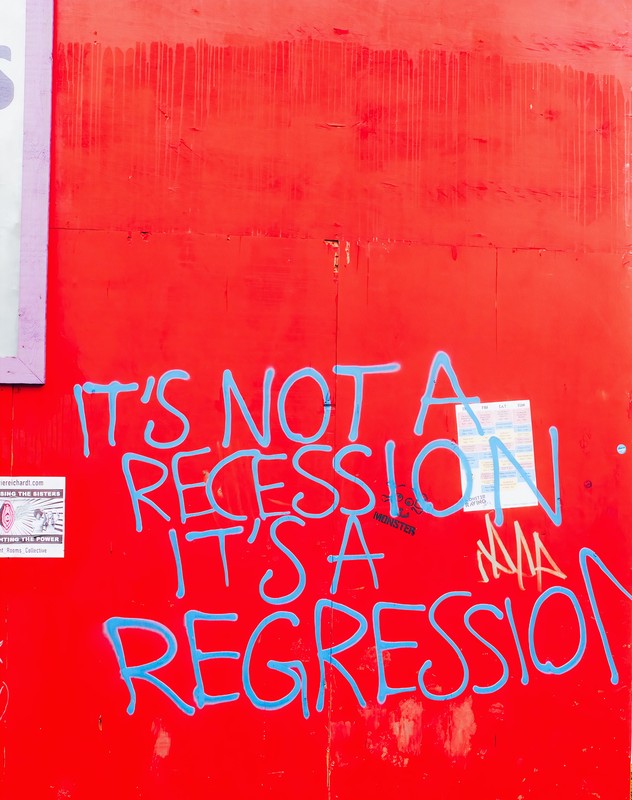
Are we in a recession? Well, it depends on who you are talking to.
The traditional view is when there are two consecutive quarters of decline in a country's real gross domestic product is commonly used as a practical definition of a recession.
But, the definition of a recession has started changing.
Nowadays, we cannot agree on the definition anymore. Everything is open and up to debate.
All indicators show that we are heading or have already in a recession.
From the government bailout companies to not allowing a recession anymore in the economy, where are we heading if there is no clear guidance on the economy from the government?
So, we are technically in a recession, but we are not in a recession.
And we are heading into an even worse economic cycle:
But that is okay, and we can redefine everything from now on.
Here is the question about a recession, is a recession man-made or a natural process?
If a recession is caused by humans and is a man-made event, the government has the right to change the definition. Since the government has been created collectively to represent the majority of the people in the nation, they have a right as a creator of the collective force to change the definition of the recession.
What if a recession is a part of nature?
Then refusing a recession is a violation of natural law.
I think a recession is man-made, and it is okay for the government to change the definition if they want to. They have to convince citizens that the change is acceptable.
So, we are in a recession according to the traditional definition, but we may not yet be in the recession if the broader definition claims "a significant decline in economic activity that is spread across the economy and that lasts more than a few months."

https://www.npr.org/2022/07/28/1113649843/gdp-2q-economy-2022-recession-two-quarters
At the end of the day, it becomes a political debate that does not affect people's daily lives.

If you enjoy reading my articles, buy me a coffee here.
Comments